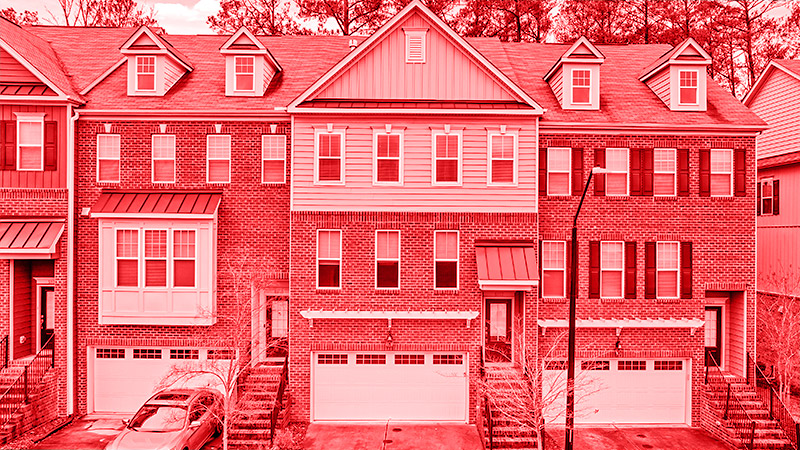The Bank of England’s Base Rate is the interest rate set and charged for lending money from the central bank in the UK, in this case the Bank of England to commercial banks.
Although banks can choose to offer the interest rates of their choosing on the financial products they offer e.g. loans and mortgages, the reality is that the Bank of England’s base rate does have a big impact on what they decide to offer.
The Bank of England’s ability to influence the interest rates offered by commercial banks means that they can encourage or discourage spending.
For example, if spending is deemed to be too low, the base rate will be decreased and if it’s too high, it will be reduced.
What is the current Base Rate?
At present, the Bank of England’s base rate stands at 3.5%.
During the pandemic, the base rate was slashed twice to help ease the strain on the economy. Once in March 11th 2020 from 0.75% to 0.5% and then again on the 18th March 2020 to just 0.1%.
However, since then the base rate has been increased numerous times, now hitting the 3.5% figure at the most recent update.
The Bank of England review the base rate on the first Thursday of every month and may be changed depending on the rate of spending in the economy.
However, during times of crisis they can meet and make changes more regularly, just like they did during the coronavirus pandemic.
What is the Bank of England Base Rate?
The base rate is the interest rate set by the Bank of England (BoE). This is the interest rate they charge commercial banks for borrowing their money.
Although the interest rates offered on financial products are influenced by a umber of factors, including the bank/lenders own decision, their interest rates are often derived from base rate.
It’s for this reason that the base rate can also have an impact on mortgage interest rates.
However, the type of mortgage you are on will be another important factor in terms of how much and when the base rate will impact your mortgage interest.
For example, it’s important to be aware that in the short term changes in mortgage interest rates don’t impact current mortgage borrowers, since the majority are on a fixed term mortgage.
A fixed-rate mortgage is a mortgage with a specific interest rate locked in for a certain duration e.g. 2, 4 or 10 years.
Therefore, the majority of people i.e. those on a fixed rate mortgage will see no change in their mortgage payments in the short term.
It’s only once the fixed term comes to an end and that you are placed onto your mortgage lenders standard variable rate will you likely be impacted by an increased interest rate.
Increasing Base Rates Doesn’t Always Mean Higher Mortgage Interest Rates
It’s also important to remember that although the base rate is often correlated with higher mortgage interest rates, this isn’t always the case.
For example, after the mini-budget in September 2022 lenders factored in price increases to their financial products and since then mortgage rates have slightly decreased over the last few months, not increased.
History of the Bank of England Base Rate UK
Overall, the Bank of England has done a good job at maintaining a stable base rate since they were founded back in 1694. However, there has been a few periods of turbulence, including:
- The highest interest rate ever recorded was in 1979 when it peaked at 17%.
- The lowest ever interest rate recorded was in 2020 when it fell to 0.1%.
In the table below you can see how the base rate has changed since 1979, starting from the earliest year until the present year:
Bank of England base rate 1979-2023
| Bank rate at year end (%)* | |
| 1979 | 17 |
| 1980 | 14 |
| 1981 | 14.375 |
| 1982 | 10 |
| 1983 | 9.0625 |
| 1984 | 9.5 |
| 1985 | 11.375 |
| 1986 | 10.875 |
| 1987 | 8.375 |
| 1988 | 12.875 |
| 1989 | 14.875 |
| 1990 | 13.875 |
| 1991 | 10.375 |
| 1992 | 6.875 |
| 1993 | 5.375 |
| 1994 | 6.125 |
| 1995 | 6.375 |
| 1996 | 5.9375 |
| 1997 | 7.25 |
| 1998 | 6.25 |
| 1999 | 5.5 |
| 2000 | 6 |
| 2001 | 4 |
| 2002 | 4 |
| 2003 | 3.75 |
| 2004 | 4.75 |
| 2005 | 4.5 |
| 2006 | 5 |
| 2007 | 5.5 |
| 2008 | 2 |
| 2009 | 0.5 |
| 2010 | 0.5 |
| 2011 | 0.5 |
| 2012 | 0.5 |
| 2013 | 0.5 |
| 2014 | 0.5 |
| 2015 | 0.5 |
| 2016 | 0.25 |
| 2017 | 0.5 |
| 2018 | 0.75 |
| 2020 | 0.25 |
| 2020 | 0.10 |
| 2021 | 0.25 |
| 2022 | 0.5 |
| 2022 | 0.75 |
| 2022 | 1.0 |
| 2022 | 1.25 |
| 2022 | 1.75 |
| 2022 | 2.25 |
| 2022 | 3.0 |
| 2022 | 3.5 |
Source: Bank of England Official Bank Rate History
When does the base rate change?
The Bank of England change the base rate the first Thursday of every month or eight times annually. H
However, at times of crisis they may change it more often.
The next base rate change is set for the 2nd February 2023, with the following one on 23 March 2023.
The Monetary Policy Committee can decide to change or keep the current interest base rate.
They make this decision based on the current status of the economy and may or may not change it based on their view of the best course of action that would result in stabilising the UK economy.
Why does the Bank of England change the Base Rate?
The Bank of England increase the base rate in order to “cool” the economy and control surging inflation.
In October, the Consumer Prices Index (CPI) measure of inflation rose to a heady 11.1% in the 12 months to October, in direct conflict with government targets of 2% inflation.
Unfortunately, if inflation does not start to fall, the Bank of England could decide to continue to increase rates into the new year.
The cost of energy is another major contributor to surging inflation, but thanks to the UK government’s Energy Price Guarantee this has been tempered to a large degree.
What determines the mortgage interest rates?
Although your actual mortgage rate will be determined by factors like the product you choose and your particular lender, the Bank of England’s base rate also has a major impact to mortgage interest rates.
The base rate doesn’t just impact mortgages, but a wide range of financial products, as well as the value of the pound itself.
The Bank of England review the base rate on the first Thursday of every month and may be changed depending on the rate of spending in the economy.
For example, if spending is deemed to be too low, the base rate will be decreased and if it’s too high, it will be reduced.
What does this mean for you?
With interest rates changing regularly, there is a lot of volatility in the market at present with mortgage deals being constantly updated to reflect the rapid pace of change.
With this in mind, it’s now unarguably more true than ever that you should contact a mortgage broker for help and advice.
A mortgage broker or advisor can hold your hand through the entire process, from initial searches to dealing with the legal stuff, to ensure the process is as smooth as possible.
Call us today on 01925 906 210 or contact us. One of our advisors can talk through all of your options with you.

















